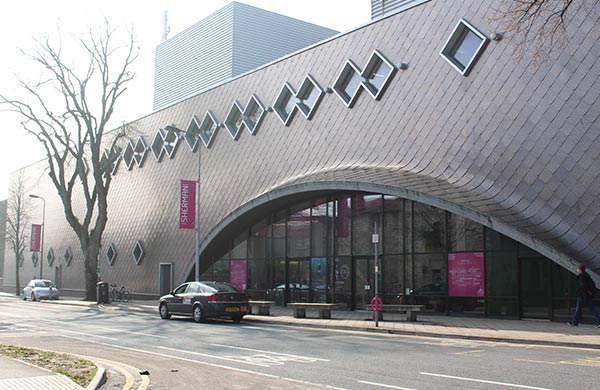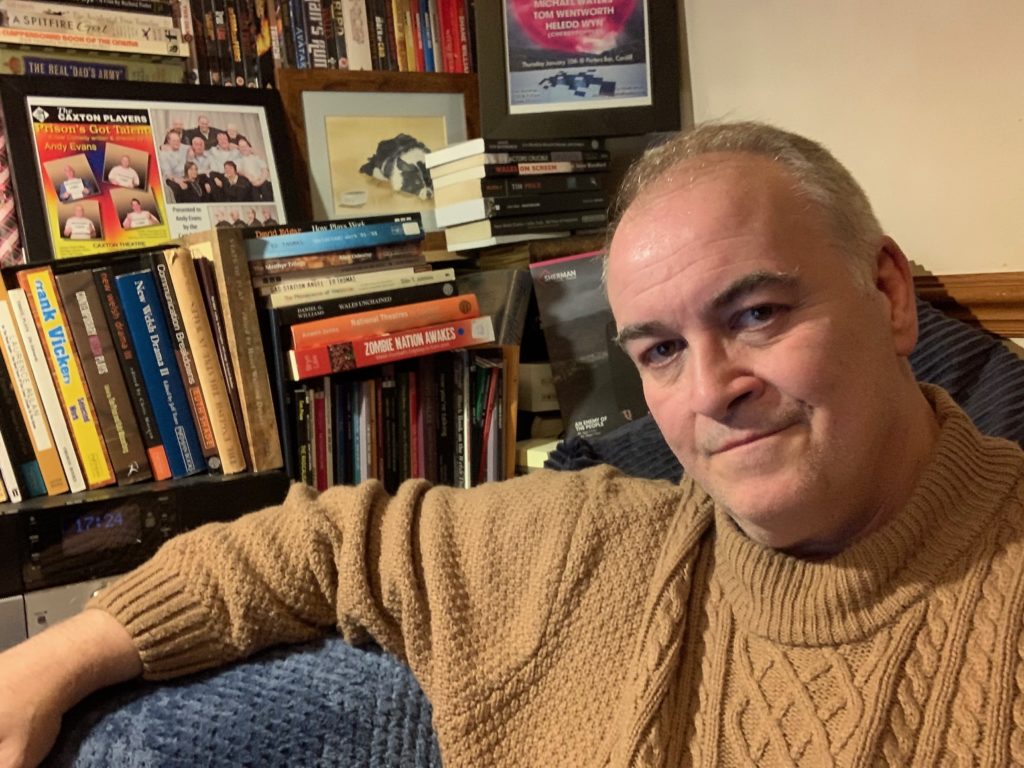
Hi Andy great to meet you, can you give our readers some background information on yourself please?
I’m a Welsh playwright currently living in Lincolnshire and studying an MA in Theatre at the University of Lincoln. I was born in Cardiff and raised in Penarth, where my love of drama and theatre was nurtured. I left Wales to train as a teacher in 1988 and went on to work as a teacher of Criminal Law for 25 years, before redundancy made a switch necessary and I became a primary teacher, with responsibility for Literacy in the school. After six years I decided that the time had come to move on and to pursue my passion, so I left teaching and began running Breakwater Theatre Company full-time. I also wanted to look to improve my knowledge and understanding of theatre and chose to study for an MA in Theatre, in order to validate the years of work I had done to date.
During my time as a teacher, I began writing plays for a youth theatre I ran as a volunteer in Grimsby. My first play was published by a small publisher in Essex in 1999 and in 2001 my play Moonlight Marionettes was published in the USA by playscripts.com. I joined Hull Truck Theatre Company where I was commissioned to write a full-length play entitled, Taking a Bullet. I also got involved in Stories of the Streetz, with the National Theatre of Wales, the Sherman Writers’ Group and Dirty Protest, for whom I have written twice. I also worked with Middle Child in Hull and Slung Low in Leeds among others. All of which led me to establish my own company, Breakwater, which specialises in new writing for the stage and has worked in conjunction with New Perspectives, in developing scripts and writers nationally.

So, what got you interested in the arts?
I went to St Cyres Comprehensive in Penarth; a school where I feel the arts were championed, and we had some really dedicated drama and music teachers. My inspiration was drama teacher Joy Nubert, she was a passionate advocate for drama education and ran extra-curricular workshops and productions. I performed in West Side Story and Oh! What a Lovely War, as well as workshopping scripts by Pinter and Orton.

We also had an amazing music teacher called Anne Harris, who led the school Music Department with passion and vigour. I guess my passion for performing arts was born there. Their love of the arts was infectious and inspiring. The arts help an individual to learn about themselves and to discover what makes people tick, to encourage support and inspire That is something I still see as important and influenced my choice of University for my MA. The University of Lincoln is championing a campaign to say #WhyArtsMatter a hashtag I fully endorse.
Why and where do you write?
I write at home and tend to write in the corner of my living room, though not exclusively. I enjoy being surrounded by my books and videos, with easy access to the internet to help me gain inspiration if I start to dry up. I also have two Dalmatians, who hate being left home alone and enjoy cwtching up as I write. I tend to write extremely quickly, which is a habit born out of necessity back when I was teaching. I would never write during term time and would get the majority of my writing done during school holidays. I tend to spend a lot of time preparing to write, mentally planning the plot and the structure and so on, before I ever open a Word document and beginning to write. The first draft of a play is often written in a very short window of opportunity and I re-write at leisure thereafter.
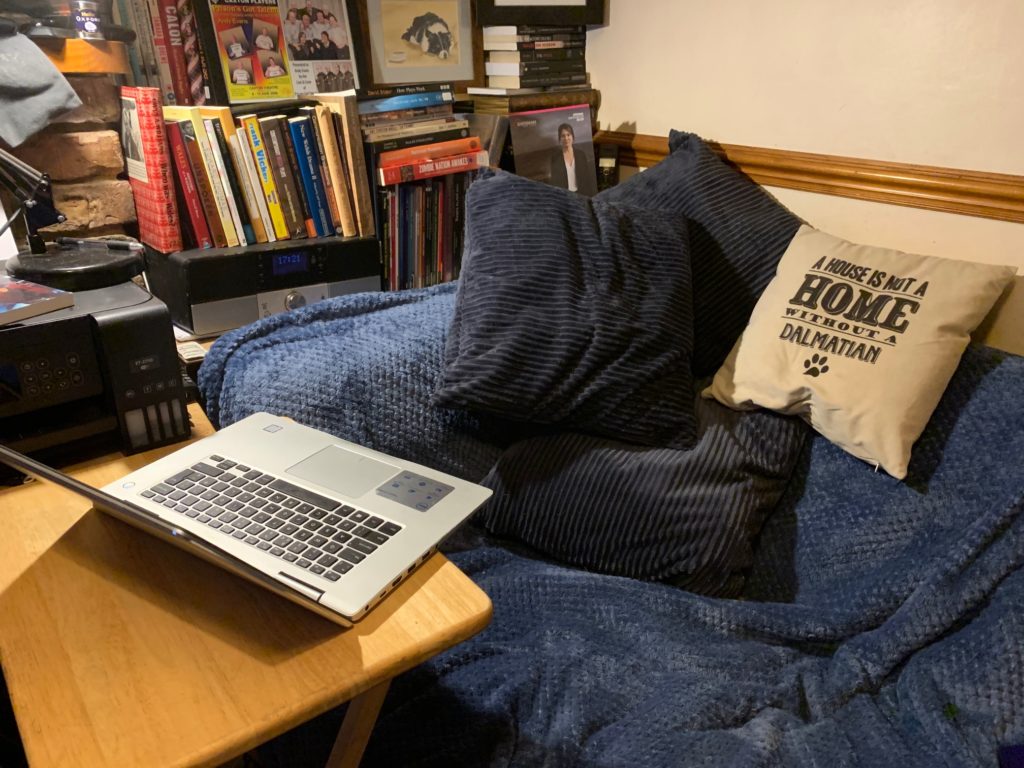
As to why I write, I write because I can’t help myself. I love writing and my brain loves contemplating things that would be interesting dramatically, which I could put on stage to entertain others. There is no “Go To Book of Ideas” it could be a picture, a documentary, an overheard conversation. The only rule is to ask “Would it make an interesting story?”
There are a range of organisations supporting Welsh and Wales based writers, I wonder if you feel the current support network and career opportunities feel ‘healthy’ to you? Is it possible to sustain a career as a writer in Wales and if not what would help?
I feel bad saying this, but I have received very little help or support from within Wales. As mentioned, I was a member of the Writers Group at the Sherman many moons ago, and that was useful for meeting and networking. My favourite support network within Wales is the small but mighty Dirty Protest, especially working with Catherine Paskell. The work done by DP is astonishing and they are, by far, the primary advocates for new Welsh playwriting. I love them and wish I could always write for them.
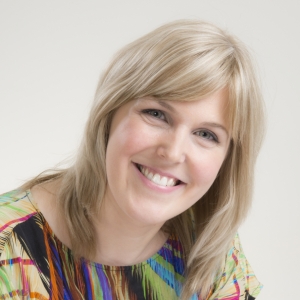
And when John McGrath was in charge of the NTW, I felt that I had support and was welcomed with open arms to discuss my work and what I was doing. John even messaged me from Japan to ensure I was going to be able to discuss my work with someone from his team.
However, following the subsequent regime change, I felt edged out and during a meeting, was given the impression that it was unlikely I would be considered as I am not based in Wales. There are those of us who still qualify as “emerging artists” who are more mature and there are far less opportunities for us to market and stage our work. I would like to see schemes specifically aimed at mature writers. Their work can have just as much resonance as somebody a third of their age.
In addition, if a Welsh writer has chosen to work and reside outside Wales but then offers to work within Wales and Welsh theatres, it should not be held against them as there are such things as cars and trains. I get back to Penarth regularly and can always be available through a base in my family home. Its just another excuse for excluding someone. Let me decide if I am willing to drive back and forth, or stay in Wales for an extended period, don’t assume it won’t work in advance.
One reason I have chosen to remain in Lincolnshire for now, is that I get more work as a writer here. I am unsure that a move home would increase work opportunities and may lose some. During 2019, I was able to write and produce two newly commissioned plays and would not have the ability to see such work through to fruition at home, as there are far fewer opportunities offered and more writers chasing them. Ironically, one of my new plays. Indomitable, was about the life of Welsh author and disabled rights campaigner Elisabeth Sheppard Jones. I worried that the slightly parochial setting (Penarth in the 1950s – 70s) wouldn’t play well, but the play was a resounding success here in Cleethorpes.
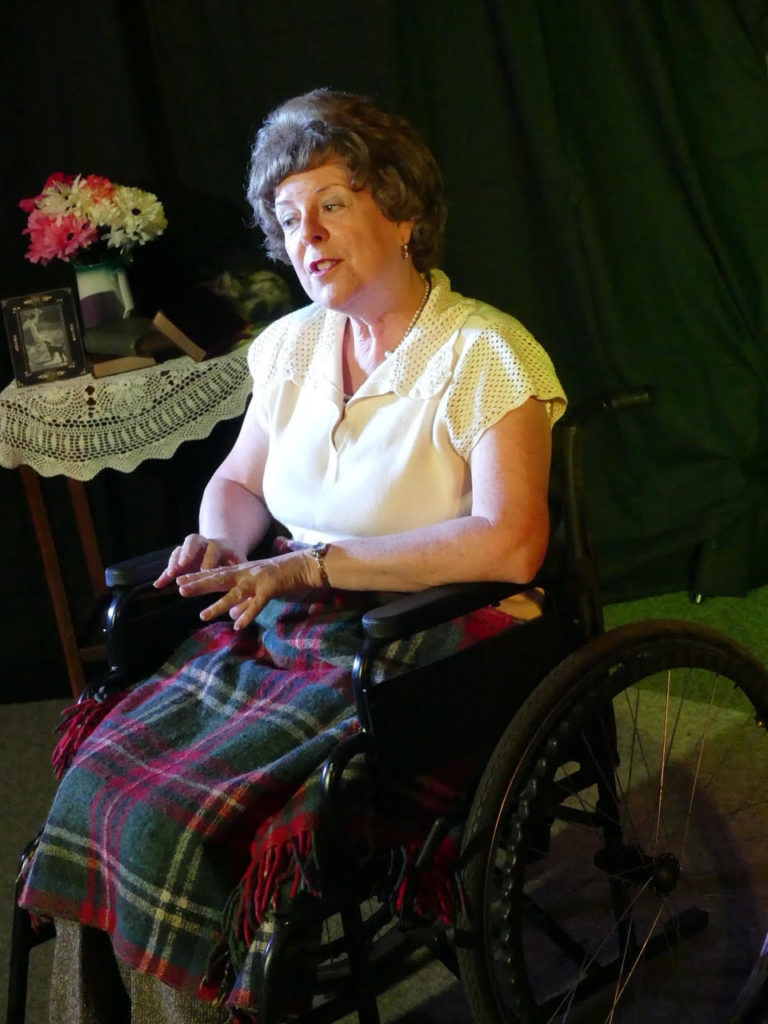
I try to familiarise myself with the available work and career support in Wales, I am part of the NTW Community and I am on the mailing list for the Welsh branch of the Writers Guild of Great Britain, but I do still feel isolated from the theatre scene and hiraeth draws me home to watch others making work repeatedly. I would love to make more work in Wales, especially within Cardiff.
If you were able to fund an area of the arts in Wales what would this be and why?
I would love to offer a bursary to an emerging writer of mature years, giving them the freedom to write without worrying about how it would affect their income. Youth is often the only form of “new” considered by many in theatre. I staunchly believe that there are other writers out there who could benefit from career development but are discouraged by perceptions of ageism. Allow more mature people to explore and to be creative; fund them and then give them an outlet to share their work. It doesn’t have to be, and should not be, at the expense of opportunities for younger writers, but there are some amazingly creative people out there who think they have lost the chance to make a mark creatively. I would seek to encourage precisely that.
Can you tell us about your writing process? Where do your ideas come from?
As I mentioned earlier, I am constantly thinking about what the next idea will be or where the idea will come from. I don’t try to force creativity; I pay attention to the word around me. Moonlight Marionettes was inspired by a photo I saw on the internet. I wrote Indomitable about Elisabeth Sheppard Jones after reading about her on a Facebook page for local memories. The other play I wrote this year, was entitled With Love From Ruhleben.
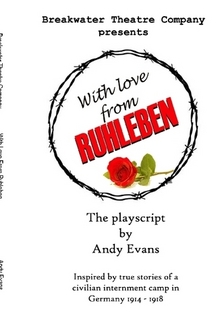
I was commissioned to write it as part of a project funded by the National Lottery’s Heritage Fund and Lincs Inspire Libraries. Ruhleben was a civilian internment camp in Spandau, just outside Berlin at the outset of WW1. Any foreign nationals in Germany at the outbreak of hostilities were rounded up and the males were interred. For 5000 men that was their war. Many men from Grimsby were imprisoned as they had been in German waters at the time. So, I interviewed relatives of men who served and created a fictionalised story that forms part of an educational resource sent out to all secondary schools in the area. A filmed performance of the play on DVD and a copy of the script, accompanies a teacher’s pack for each school.

Can you describe your writing day? Do you have a process or a minimum word count?
No two writing days are ever the same for me. I will often have spent months thinking about, researching for or plotting a play before I commit to writing and I outline the story before I start writing. I talk about that as a gestation period. Then, eventually, I will sit down to write. I pour myself a cup of coffee and open up my laptop, then I begin to write “Act One, Scene One”.
Generally, I write in a traditionally, linear fashion. I start as early as I can, after feeding and walking my dogs. I don’t set myself a word or a page count, I write everything that comes and finish when it feels right to do so. When writing the Ruhleben play, I sat and wrote for a full twelve-hour day and hammered out a complete full draft. I’m not proud of that as it went through a lot of rewrites, but I was at least able to see exactly where I wanted the story to go.
I don’t use a dramaturg, which is ironic as I am hoping my MA will allow me to offer my services to others in precisely that role. Instead, as I often direct my own work, the rehearsals help to re-shape a script. I do sometimes send a script to a trusted colleague, or fellow writer to give it a once over. If it has any detailed, technical requirements, I do try to check with an expert, that I haven’t made any glaring errors.
However, it often depends on which company I am writing for. I have found that different companies employ different methodologies and so I may work with a literary manager or a director on tweaking the final script. I really enjoyed working with the (then) Literary Manager at Hull Truck Theatre, Nick Lane to develop scripts and to shape them for performance. This in turn, also led to me joining the Literary Department as a reader at the time as well.

You have recently started a new project Review Culture reviewing events across Lincolnshire. Does your theatrical knowledge impact upon your role as a critic?
Review Culture was set up as a direct response to the death of local news reporting and reviewing in the area I live. During my MA, we have been encouraged to write ABOUT theatre as well as FOR theatre. Dr Sue Healy led some sessions about the work of a reviewer or critic, and I found myself drawn to the work. I love going to see work in performance, be it amateur or professional. I decided that if I offered an online portal that reviewed work free of charge and yet which helped to publicise what is happening across Lincolnshire, it could only be a good thing. As a keen photographer, I also shoot production photos which are featured on the site too. I think that my background does impact upon the review process and upon the final product. We don’t use a star-rating system, the reviews merely reflect the good that we see presented in a show. I know its possible to rip some shows to shreds but that is not our mission. We review a lot of amateur productions and I recognise how much time and effort will have gone into staging work. Our reviews respond to their love and enthusiasm of the form. If a review is somewhat thin, we may not have enjoyed a show quite so much. But if we issue praise, it is because we believe it is well-deserved. After all, if audiences attend a show on our recommendation and it is a dud, they won’t trust us, or keep using our site to check out the reviews. We will become redundant very rapidly.
Andy, I know you are currently engaged on a course of study and are specifically focusing on Welsh Playwrights I wonder if it’s possible to tell me some more about this please.
This is my pet subject, when I was offered a place on the course, many assumed that I would choose to write a play as my final project because it is an option available to me. Even I thought I would most likely choose that option. But fate stepped in and showed me how much I love research. The Library facilities at Lincoln are awesome. They run a scheme which allows students to request book purchases that will assist their studies and I have made great use of the scheme. I have persuaded them to order plays by a number of Welsh writers including Matthew Bulgo, Alun Saunders, Dic Edwards and Neil Anthony Docking. All of which feed into my intended topic for a dissertation.
Tutors within the school are supportive and have encouraged me to pursue my interest as a full study for my final project on the course. I intend to research and write about the way in which Welsh playwrights present nationality and nation in their plays. I have already spent time reading some of the earliest published plays written in English, considering the likes of Jo Francis, Caradoc Evans and latterly, Emlyn Williams, to contrast with the contemporary writers. As yet, I haven’t formulated a question for my thesis, and I am merely reading as much as I can. I hope to refine my field of study and hone the work down to relevant texts over the next two months. Once I have a specific research question sorted, I shall be making contact with as many writers as I can manage, and I hope that they will all have an opinion to share.
My tutors have warned me that I may be taking on a study that could be better suited to PhD and will need to be cautious to narrow my work, but we shall see what comes. Either way, my dissertation will need to be written and submitted by September 2020.
What excites you about the arts in Wales?
I find the arts scene and the theatre scene, in Wales fascinating. It’s a brilliant community to be a part of and it is remarkably generous, giving and supportive in my experience. I love the diversity of the work created and the themes explored by writers such as Gary Owen and Katherine Chandler. The work of Tim Price continues to inspire me, and I only hope that I can gain a tiny sliver of the success that each has had. I continue to proselytise for Welsh playwriting in the realm of English theatre. I desperately want to ensure that exiles are not forgotten among the ranks of Welsh writers. That is why I love the work being led by Rebecca Hammond of Chippy Lane, championing those of us who are no longer based in the Land of Our Fathers. Cool Cymru has made an impact on the world and it would be great to think that it will continue, and the work of Welsh playwrights, resident and ex-patriot, will continue to thrive.
What was the last really great thing that you experienced that you would like to share with our readers?
I know I bore anyone who knows me when asked a question like this, but the single, most influential piece of theatre I have seen in recent years, from my perspective, was Iphigenia in Splott by Gary Owen, starring the powerhouse that is Sophie Melville.
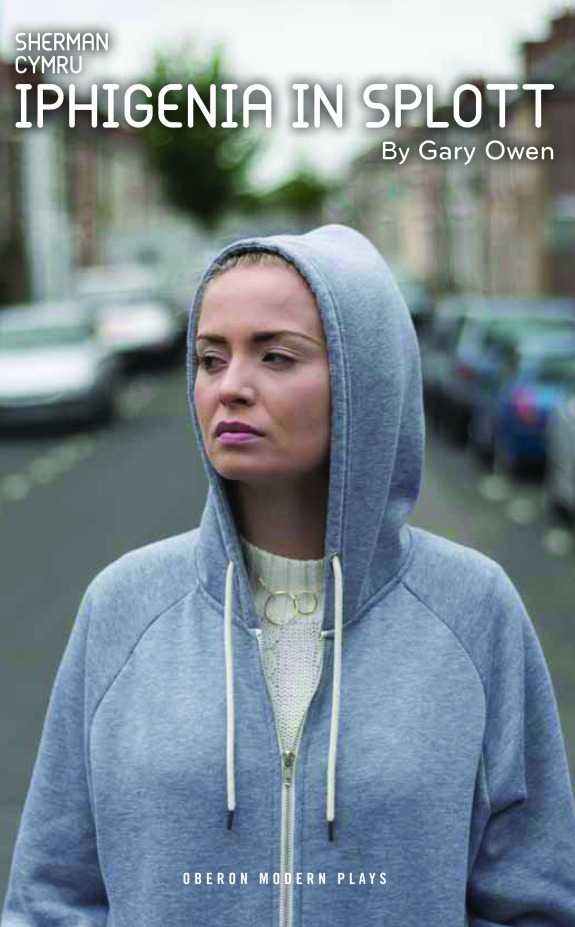
Sophie is one of the greatest “undiscovered” gems of British theatre and I will fight anyone who says otherwise. What she, Rachel O’Riordan and Gary Owen achieved in that production, has really helped to lift the level of respect for Welsh plays in the eyes of those who are not from, or based in Wales. The whole team responsible for bringing that production into the world deserves praise from designers and tech to the final performance. The work of the Sherman is the last REALLY great thing I experienced, and I hope to experience even more from Cardiff’s premier producing theatre.
